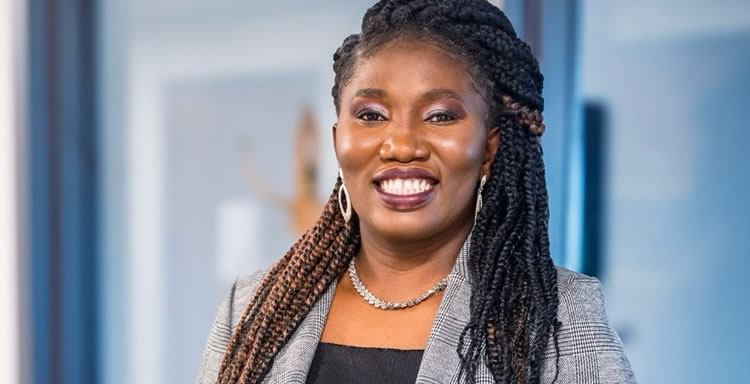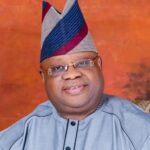Education plays a crucial role in shaping the future of any nation, and in Nigeria, the need for transformative leadership and innovative policies in the education sector has never been greater. Today, we are privileged to speak with Olateju Akintayo, an educational leader, school administrator, and advocate for AI-driven learning and policy reforms.
With a Bachelor’s degree in Microbiology from Ladoke Akintola University of Technology, a Postgraduate Diploma in Education from Obafemi Awolowo University, and a Master’s degree from the University of Nebraska-Lincoln, Olateju has a wealth of experience in curriculum development, leadership training, and school administration. Olateju’s Master’s work focused on Leadership Development Curriculum, In 2023, she designed the curriculum for over 50 K-12 Students at an annual event of Nebraska Human Resource Institute.
During the COVID-19 pandemic, she pioneered a school to ensure continuous learning for students in underserved communities, reinforcing her belief that education must be resilient, inclusive, and globally competitive. In this interview, she shares her journey, insights on leadership in education, the impact of AI on learning, and her vision for Nigeria’s education system.
Let’s dive in!
- Can you tell us about your journey in the education sector and what inspired you to pioneer a school during the COVID-19 pandemic?
Answer:
My journey in education started with a deep passion for leadership, youth development, and improving learning outcomes. During the COVID-19 pandemic, education was severely disrupted, particularly for children in underserved communities. Seeing this crisis firsthand, I knew something had to be done. I leveraged my expertise in school administration, leadership training, and curriculum development to establish a school that provided structured, adaptive, and inclusive learning opportunities despite the global crisis. This experience reinforced my belief that education is the foundation of societal transformation and must be resilient in the face of challenges.
- What makes your approach to education and leadership development unique?
Answer:
My approach focuses on innovation, inclusivity, and leadership cultivation. I strongly believe that education must evolve to meet the needs of the 21st century. This is why I integrate AI-driven learning, personalized educational strategies, and leadership training into my models. My work emphasizes mentorship, practical skill-building, and equipping students with problem-solving abilities to thrive in today’s competitive global landscape.
In addition, I am committed to developing globally competitive schools in Nigeria and the world at large, ensuring that students are not just learning but are being prepared to lead, innovate, and excel on an international stage. My passion led me to pursuing a degree in Leadership Education,
- You’ve also been involved in AI-driven education. How do you see AI shaping the future of learning in Nigeria?
Answer:
AI has the power to revolutionize education by making learning more personalized, accessible, and efficient. In Nigeria, where we face challenges such as overcrowded classrooms and a lack of resources, AI can provide adaptive learning solutions, real-time feedback for students, and better teaching tools for educators.
I advocate for policies that integrate AI and leadership development into Nigeria’s education system to ensure our students are globally competitive. With AI, we can bridge learning gaps, improve engagement, and tailor education to individual students’ needs, making quality education more inclusive and effective.
- What do you see as the biggest challenges in Nigeria’s education sector, and how can they be addressed?
Answer:
The three major challenges are:
- Lack of infrastructure and resources: Many schools still struggle with basic facilities.
- Outdated curriculum: We need an education system that fosters innovation, leadership, and real-world problem-solving.
- Limited access to quality teacher training: Educators need continuous professional development and exposure to global best practices.
To address these, we need:
- Government-private partnerships to invest in modern infrastructure.
- A curriculum overhaul that integrates leadership, AI, and 21st-century skills.
- Ongoing training for teachers, ensuring they have access to technology, leadership programs, and global teaching methodologies.
My work focuses on these areas, and I am actively working towards establishing a globally competitive school in Nigeria that embodies these principles.
- As a woman in educational leadership, what challenges have you faced, and what advice do you have for aspiring female leaders?
Answer:
Women in leadership often face gender bias, limited opportunities, and societal expectations that can make career progression difficult. However, I have always believed in persistence, competence, and impact-driven leadership. I have overcome challenges by staying focused, continuously developing my expertise, and building a strong support network of mentors and peers.
My advice to aspiring female leaders is:
- Embrace leadership training early and seek mentorship.
- Be resilient and proactive challenges will come, but your impact is what defines you.
- Continuing learning education is dynamic, and staying informed is key to leading effectively.
Women must take up more leadership roles in education because we bring unique perspectives that foster inclusivity, empathy, and transformative leadership.
- What are your long-term goals?
Answer:
One of my long-term goal is to establish a globally recognized school in Nigeria that integrates international best practices, AI-driven education, and leadership training. I also aim to influence policy reforms that improve teacher education, school administration, and curriculum development in the United States, Africa, and all over the world. I also seek to collaborate with global experts, allowing me to implement high-impact policies and programs in education.
- How do you see your work aligning with Nigeria’s broader vision for educational development?
Answer:
Nigeria’s long-term development depends on a strong, globally competitive education system. My work aligns with this vision by:
- Building leadership capacity in students and teachers, ensuring they are equipped to innovate and lead.
- Advocating for policy changes that integrate AI, technology, and leadership training into schools.
- Developing high-quality learning environments that meet global standards.
With the right support, Nigeria can become a hub for world-class education, and I am committed to making that a reality.
Olateju Akintayo’s passion for education and leadership shines through her work in school administration and her commitment to transforming Nigeria’s education sector through innovative teaching models, leadership development, and global best practices is truly inspiring.
As Nigeria strives to build a globally competitive education system, leaders like Olateju are at the forefront of change, bridging learning gaps, advocating for policy reforms, and equipping students with the skills needed for the 21st century.
Her journey serves as a reminder that education is not just about learning, it’s about empowering, innovating, and leading transformation. We look forward to seeing her continued impact in shaping the future of education in Nigeria and beyond.
For more questions or to connect with Olateju Akintayo, please reach out via email at topsytej17@gmail.com.
WATCH TOP VIDEOS FROM NIGERIAN TRIBUNE TV
- Let’s Talk About SELF-AWARENESS
- Is Your Confidence Mistaken for Pride? Let’s talk about it
- Is Etiquette About Perfection…Or Just Not Being Rude?
- Top Psychologist Reveal 3 Signs You’re Struggling With Imposter Syndrome
- Do You Pick Up Work-Related Calls at Midnight or Never? Let’s Talk About Boundaries







